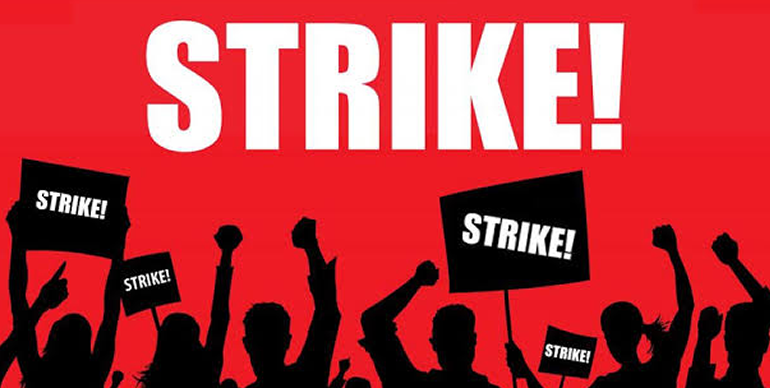From Fred Itua, Abuja
A Non-Governmental Organisation (NGO), Help Africans Charity Network (HACN), has called on the Federal Government of Nigeria, to as a matter of urgency, resolve issues surrounding the industrial actions embarked upon by Nigerian Association of Resident Doctors. Source: Sun News Online
The Resident Doctors had embarked on an indefinite strike on July 26, 2023, following the expiration of a two-week ultimatum they issued to the government to meet their demands.
They are demanding the implementation of the one-for-one replacement policy for healthcare workers; the Medical and Dental Council of Nigeria to discontinue the downgrading of the membership certificate issued by the West African Postgraduate Medical and Surgical Colleges; the immediate payment of all salary arrears; the implementation of the Consolidated Medical Salary Structure; a new hazard allowance; and the domestication of the Medical Residency Training Act; among others.
Bearing in mind the effects of the strike actions on patients, especially pregnant women, if prolonged, the Humanitarian Organization, led by the Chief Executive Officer, Mr. Owen Obakpolo, visited some hospitals within the Federal Capital Territory at the weekend, for an outreach to pregnant women and nursing mothers in the hospitals.
Addressing newsmen, Mr. Obakpolo said most hospitals visited in Abuja City Center, especially those owned by Government were either running skeletal services or in total shut down due to Doctors’ strikes.
“The essence of our visit is to give nursing mothers and pregnant women a sense of belonging in the face of the harsh economic situation of the country.
“We have visited a couple of hospitals in the City Center and I kid you not, the situation is terrible, the Government doesn’t address this challenge on time and the doctors return to duties,” he said.
Obakpolo said his NGO, which began its operations in Australia, aims to add its quota to help in reducing poverty in Africa, by continuous reaching out to the people in the society, like it has done in Liberia, Kenya and some states in Nigeria.
On her part, Mrs Stella Adejo, the FCT Coordinator of the NGO, advised pregnant women to adhere strictly to instructions from their nurses and doctors during antenatal, urging them to observe exclusive breastfeeding especially, during the first six months of life.
One of the pregnant women who also benefited from the outreach, Mrs Hilda Adebayo, said that the government could do more to improve the health sector because it has all the necessary resources to make things better.
She said: “There are a lot of people who are suffering and the government has the resources to put things in order. People, especially pregnant women need to see the doctor when they come to the hospital, so how do you explain to them that doctor is not on seat, she may even be in labour and needs to be attended to urgently.
“Government should attend to the doctors and give them what they want so that they can go back to work.”
Another beneficiary, Mrs. Oluchi Ejiagu, said the government hospitals are very affordable for the ordinary Nigerian citizen which makes it the preferred healthcare destination for all.
According to the pregnant woman, the state of the economy makes it hard to patronise private hospitals, hence the reason many opt for government hospitals which has reduced cost for treatment.
“However, when the doctors are on strike it becomes very difficult for women to access health care. So I want the government to do something about these doctors because if they are not there most women do not have the money to access private hospitals so they will find it difficult to access healthcare.
“Imagine that you normally pay N5, 000 for your health care needs as a pregnant woman and all of a sudden you are asked to pay N45, 000 in a private hospital for the same healthcare provisions. It is a big deal. So we want the doctors to come back so that we can access health care,” she added.
Some of the items distributed by the group were baby diapers to new born babies, wrappers to pregnant women and other items.

